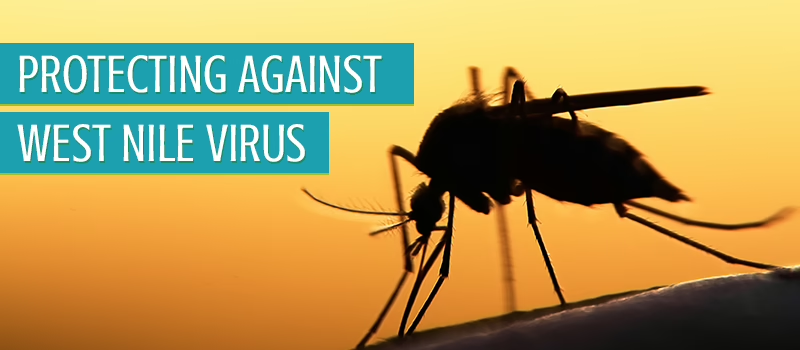The West Nile Virus has become a permanent fixture in the Northern Colorado ecosystem. This blood-borne virus is transmitted by mosquitoes that are active between dusk and dawn. While 80 percent of WNV-infected individuals show no symptoms, about 1 in 150 experience severe neurological illness, leading to brain tissue inflammation and months of recovery. Fortunately, parents can easily take precautions to guard against the West Nile Virus.
Preventing transmission of WNV largely involves controlling the mosquito population around your home and shielding your family from mosquito bites. Here are some key steps to protect against the virus:
- Utilize EPA-Registered Insect Repellents- EPA-registered insect repellents are the main defense against WNV and are safe for children over two months old, pregnant women, and breastfeeding mothers. Choose repellents that contain DEET, 2-undecanone, Picaridin, IR3535, OLE, or PMD.
- Control Exposure– The culex mosquito species, carriers of WNV, are most active at dawn and dusk. Stay indoors during these peak mosquito activity periods.
- Dress Appropriately- While shorts and T-shirts are popular summer attire, they leave skin exposed to mosquito bites. Wear long-sleeved shirts and pants to minimize exposure, especially after dusk when mosquitoes are most active.
- Use Mosquito Netting– As applying insect repellents on infants is unsafe, opt for physical barriers like mosquito netting on cribs and strollers.
- Eliminate Breeding Sites– Reduce mosquito populations by eliminating standing water where they lay eggs. Prevent water collection around your home, and empty containers like buckets, planters, tires, and toys. Ensure that items like birdbaths, fountains, and wading pools are drained and refilled every week to eliminate eggs.
Bites infected with WNV often manifest with a red area surrounding the bite that expands as the infection progresses. Initial symptoms usually appear between three to fourteen days after the bite. Severe symptoms may include nausea, fever, or confusion. Consult a healthcare professional if you suspect a family member may be infected.
Given that WNV is prevalent during summer, it is crucial for everyone to take precautionary measures against the West Nile Virus. Incorporate these practices into your summer routine to enjoy outdoor activities while ensuring your family’s protection and peace of mind.
For more West Nile Virus resources visit these sites:
- CDC https://www.cdc.gov/west-nile-virus/index.html
- CO Department of Public Health & Environment https://cdphe.colorado.gov/animal-related-diseases/west-nile-virus/west-nile-virus-and-your-health
- Larimer County- https://www.larimer.gov/health/communicable-disease/west-nile-virus
- Weld County- https://www.weld.gov/Government/Departments/Health-and-Environment/Environmental-Health-Services/Animal-Related-Diseases/Zoonotic-Diseases-Seasonal-Updates/West-Nile-Virus

